We are joyfully loyal to King Jesus, and we love to worship the Triune God when we gather together for the Sunday worship service. We warmly welcome you to join us whether or not you follow Christ as the King.
EQUIP CLASSES
9:00 AM, first Sunday of the month
WORSHIP SERVICE
10:00 AM
What to Expect
Dress
Some of us dress more formally, some business casual, and some more informally.
Children
We do not offer childcare staffed with volunteers, but we do have an overflow space for parents or guardians to let small children play quietly. (Parents or guardians are responsible for their children at all times.)
Music
We sing both psalms and hymns—mostly from the hymnal Treasury of Psalms and Hymns. Christians have been singing some of these songs for hundreds of years, and some of the songs are more recent. We emphasize congregational singing with undistracting instrumental accompaniment.
We encourage you to prepare for the upcoming Sunday worship service by listening to and practicing what we plan to sing together:
We encourage you to prepare for the upcoming Sunday worship service by listening to and practicing what we plan to sing together:
- Own copies of the Treasury of Psalms and Hymns so that you can use it to sing psalms and hymns at home.
- See and listen to our upcoming songs, see the “Sing Your Part” app. If you select “Christ the King Church (Stillwater, MN)” in that app, then you can see and hear what we plan to sing in our upcoming worship service. In the app you can adjust a song’s tempo, and you can adjust the volume of each of the four parts (soprano, alto, tenor, and bass) so that you can hear your part better. (Christ the King Church purchases a family subscription for members. A subscription gives you access to all of the resources in the app—not just the songs that we plan to sing in the upcoming worship service.)
- Listen to songs from the Treasury of Psalms and Hymns on Youtube.
- For our upcoming Worship Service Guide, see here. We aim to upload a draft for the upcoming Sunday worship service by 5:00pm each Monday so that families may start practicing those psalms and hymns together on Monday evenings.
Liturgy
When churches meet to worship God, they structure the meeting in a particular way. Some call the structure of a worship service an “order of service” or “order of worship” or “liturgy.” Every church has a liturgy. Along with many other Protestant churches over the centuries, we deliberately order our worship service in a gospel-shaped sequence:
If you are not familiar with the way we structure our worship service, then it may take some time to get accustomed to, and that’s okay. We want our liturgy to reveal and shape what we believe and value. We do not want it to become a mindless ritual. We deliberately follow the same basic structure to remove distractions so that we can focus on encountering God. Here’s how C. S. Lewis puts it:
- Call to worship. God calls us together to worship, and we praise him in song, in reading Scripture, and in prayer.
- Confession. We confess our sins corporately and then pause for a moment of silence for us to confess our sins individually. Then we receive assurance from the word of God that he has cleansed us through Christ’s sacrifice.
- Consecration. We devote ourselves to God as he speaks to us and we respond. (Consecration refers to devotion or dedication.) We read a selection from a creed or doctrinal statement, and we may baptize believers and add them (along with believers who have already been baptized) to our church as they confess to follow Jesus and covenant with our church. God speaks to us as a pastor (or a man who meets the qualifications of a pastor) reads, explains, and applies God’s word. We humbly receive God’s word with a posture that is eager to trust and obey God because God’s word is profitable to teach us, reprove us, correct us, and train us in righteousness so that we may be equipped for every good work (2 Tim 3:16–17). We respond with renewed devotion as we sing and give an offering.
- Communion. We commune with God and one another as we eat and drink the Lord’s Supper. We conclude by joyfully singing the Doxology to the tune of “Old 100th” while standing with hands raised.
- Commission. God blesses us as he sends us out to glorify him in all of life.
If you are not familiar with the way we structure our worship service, then it may take some time to get accustomed to, and that’s okay. We want our liturgy to reveal and shape what we believe and value. We do not want it to become a mindless ritual. We deliberately follow the same basic structure to remove distractions so that we can focus on encountering God. Here’s how C. S. Lewis puts it:
"Every service is a structure of acts and words through which we receive a sacrament, or repent, or supplicate, or adore. And it enables us to do these things best—if you like, it “works” best—when, through long familiarity, we don’t have to think about it. As long as you notice, and have to count, the steps, you are not yet dancing but only learning to dance. A good shoe is a shoe you don’t notice. Good reading becomes possible when you need not consciously think about eyes, or light, or print, or spelling. The perfect church service would be one we were almost unaware of; our attention would have been on God. But every novelty prevents this. It fixes our attention on the service itself; and thinking about worship is a different thing from worshipping." —C. S. Lewis, Letters to Malcolm: Chiefly on Prayer (London: Geoffrey Bles, 1964), 12.
